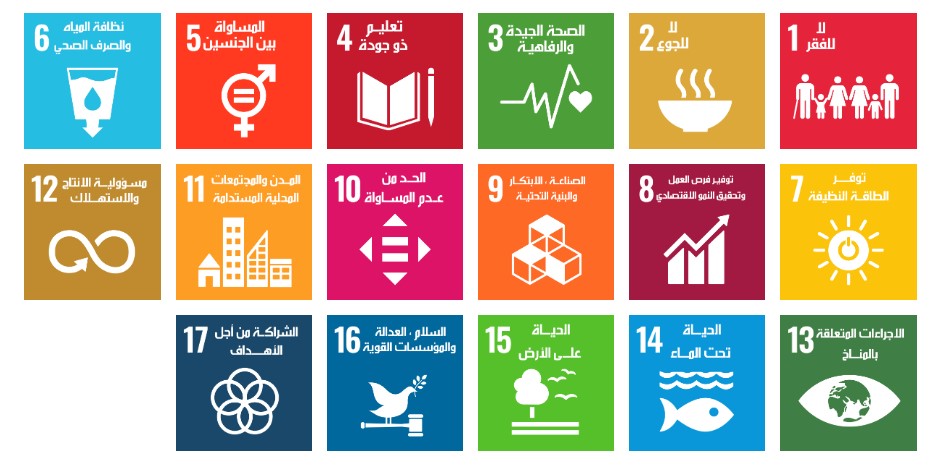The university is committed to sustainable development and to actively contributing to the achievement of the Ministry’s sustainable development goals. This policy outlines the university’s commitment to integrating sustainable practices across all aspects of its scientific, academic, and research operations. This includes reorienting curricula toward sustainability, expanding colleges that meet labor market needs, promoting a culture of environmental responsibility within the community, and addressing social and economic challenges in its surroundings.
Enhancing the quality of higher education and scientific research and developing academic programs that foster innovation to achieve sustainable development in society.

1. Commitment to Sustainability
Objective: Promote commitment to sustainability by integrating environmental principles into all academic and administrative activities.
Actions:
Develop sustainable strategies for all university projects and activities.
Integrate sustainability into curricula and scientific research.
.
2. Natural Resource Management
Objective: Efficient use of natural resources and waste reduction.
Actions:
Improve energy and water consumption efficiency in university buildings.
Encourage the use of renewable energy and environmental solutions.
Implement recycling programs and efficient waste management.
3. Waste Reduction
Objective: Reduce waste generation and enhance waste management.
Actions:
Implement recycling programs throughout the campus.
Reduce the use of disposable materials and promote the use of recyclable ones.
Organize awareness campaigns on the importance of waste reduction and recycling.
4. Pollution Control
Objective: Minimize the environmental impact of university activities.
Actions:
Use eco-friendly technologies in laboratories and facilities.
Monitor and manage emissions and pollution resulting from university activities.
Comply with local and international environmental standards.
5. Awareness and Training
Objective: Raise environmental awareness among students and staff.
Actions:
Organize workshops and training courses on sustainability and environmental practices.
Include sustainability concepts in academic and training activities.
Encourage students and staff to participate in environmental initiatives.
6. Collaboration and Partnerships
Objective: Strengthen collaboration with the local community and partners in the field of sustainability.
Actions:
Establish partnerships with research and community institutions to support environmental projects.
Participate in local and international environmental initiatives.
Support research and development in clean technologies and environmental practices.
7. Performance Monitoring and Reporting
Objective: Monitor environmental performance and issue periodic reports on progress.
Actions:
Conduct regular environmental assessments to measure achievement of environmental goals.
Prepare and publish periodic environmental performance reports.
Identify areas for improvement and develop action plans to enhance environmental performance.
8. Compliance with Laws and Regulations
Objective: Ensure compliance with all relevant environmental laws and regulations.
Actions:
Keep up to date with environmental laws and regulations.
Ensure that all university activities comply with environmental laws.
Implement necessary measures to correct violations and address environmental issues effectively.
Let me know if you want this adapted into a formal policy document or a presentation format.